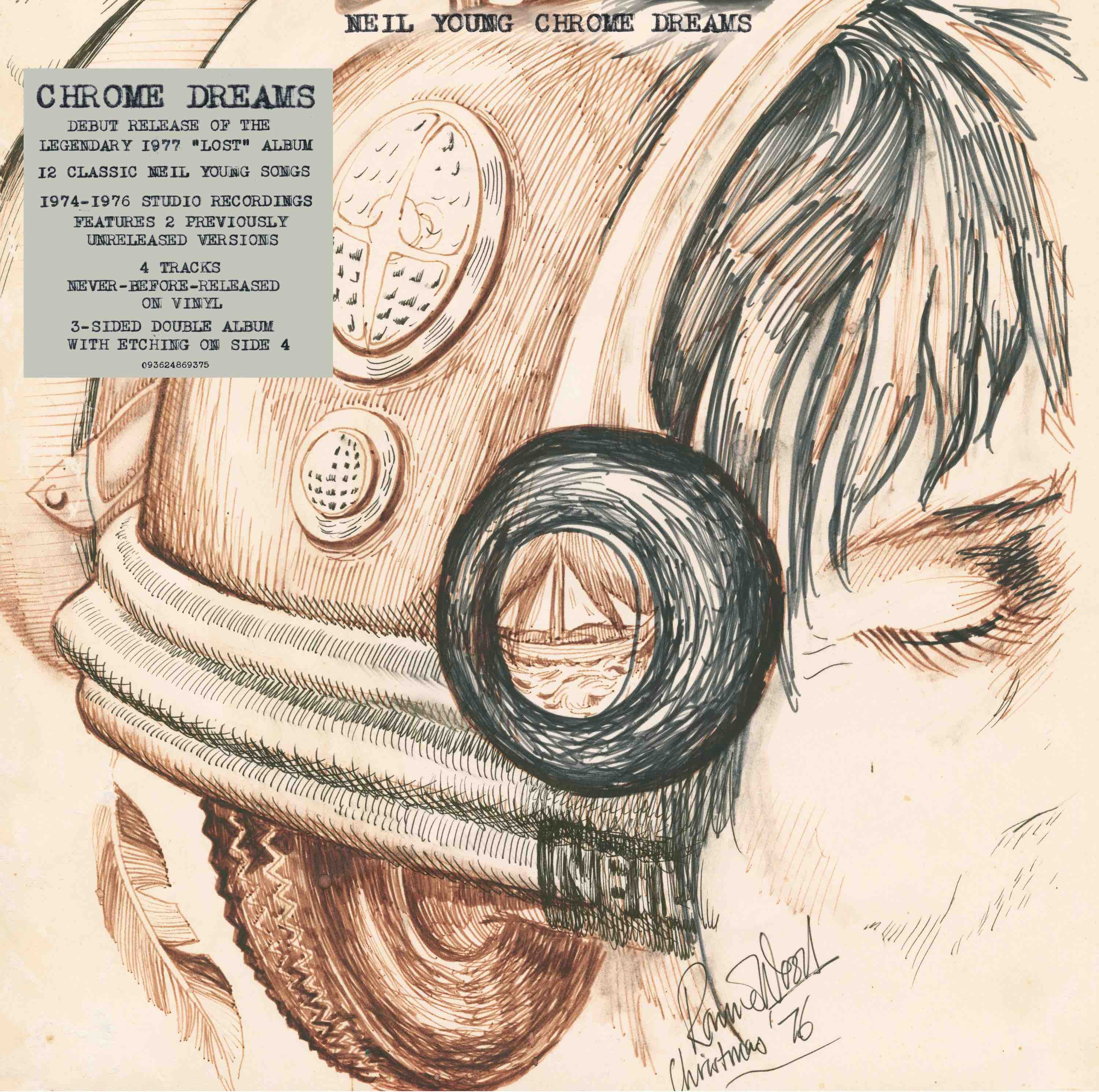Neil Young
Chrome Dreams
REPRISE
ABOVE THE CURRENT
At this point in history, Neil Young probably has more “lost” albums—notoriously readied for imminent release before being canceled—than he does actual albums. But with his recent curatorial knack for selling off his re-discoveries, all that was once missing from his storied catalog will surely soon see the light of day. Take the famed and most potent of his “almosts,” Chrome Dreams. Initially scheduled for a 1977 release after several years of recording and lineup changes, the mostly acoustic (save for his blistering electric tango “Like a Hurricane,” his weed-loving “Homegrown,” and “Sedan Delivery”) project’s acetate was copied, heavily bootlegged, and nixed with a majority of its songs making their way into the world, in one way or another, on albums such as 1978’s Comes a Time and ’79’s Rust Never Sleeps.
Now released “exactly how Young perceived it,” according to Warner’s press, the sequencing of Chrome Dreams is everything, and impeccable at that—a lingering mood with memorable melodies that are tender, intimate, and raw to the touch. Young’s first take on his eerily poetic “Pocahontas” is like squeezing all three-and-a-half hours of Martin Scorsese’s upcoming Killers of the Flower Moon and a smudge-stick lick of Marlon Brando into three minutes and a winsomely sonorous, dramatic guitar-strewn ballad. With the seven-plus minutes of “Will to Love,” on which Shakey does the one-man-band thing beautifully (including organ, piano, vibraphone, and drums) on a tale of a fish swimming upstream, Young proves that Todd Rundgren and blue-eyed R&B has nothing on him (the piano-driven, hippies-vs.-straights “Stringman” is similarly played solo, and equally folky-soulful).
“Star of Bethlehem” is an embarrassment of gorgeous riches, least of which being the angelic Emmylou Harris’ co-vocal. “Too Far Gone” is a sweet slip of a melody, sun-kissed by the gentle touch of Frank “Poncho” Sampedro’s mandolin and more than a little regret in his lyrics’ squeaky display. With its “la la las” and halting melody, “Hold Back the Tears” is Malibu-based Mexicali conjunto demo-riffing at its most finicky and refined. Young’s quiet acoustic song about a sailor’s life at war, “Captain Kennedy,” could pass for Gordon Lightfoot, God bless his soul. The strummy Crazy Horse–led mid-tempo “Look Out For My Love,” with its ragged harmonies, is Comes a Time–era country with a hint of rocky edges in its chorus that’s ever so effective in its cranky electric sparseness.
Though I’m always happy to hear new Neil Young albums (great, good, or not-so-great), if he keeps finding lost albums in his trunk as exquisite as this, well…







